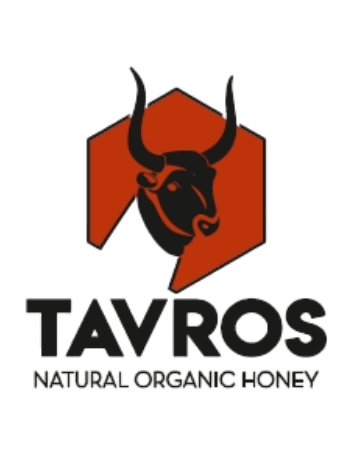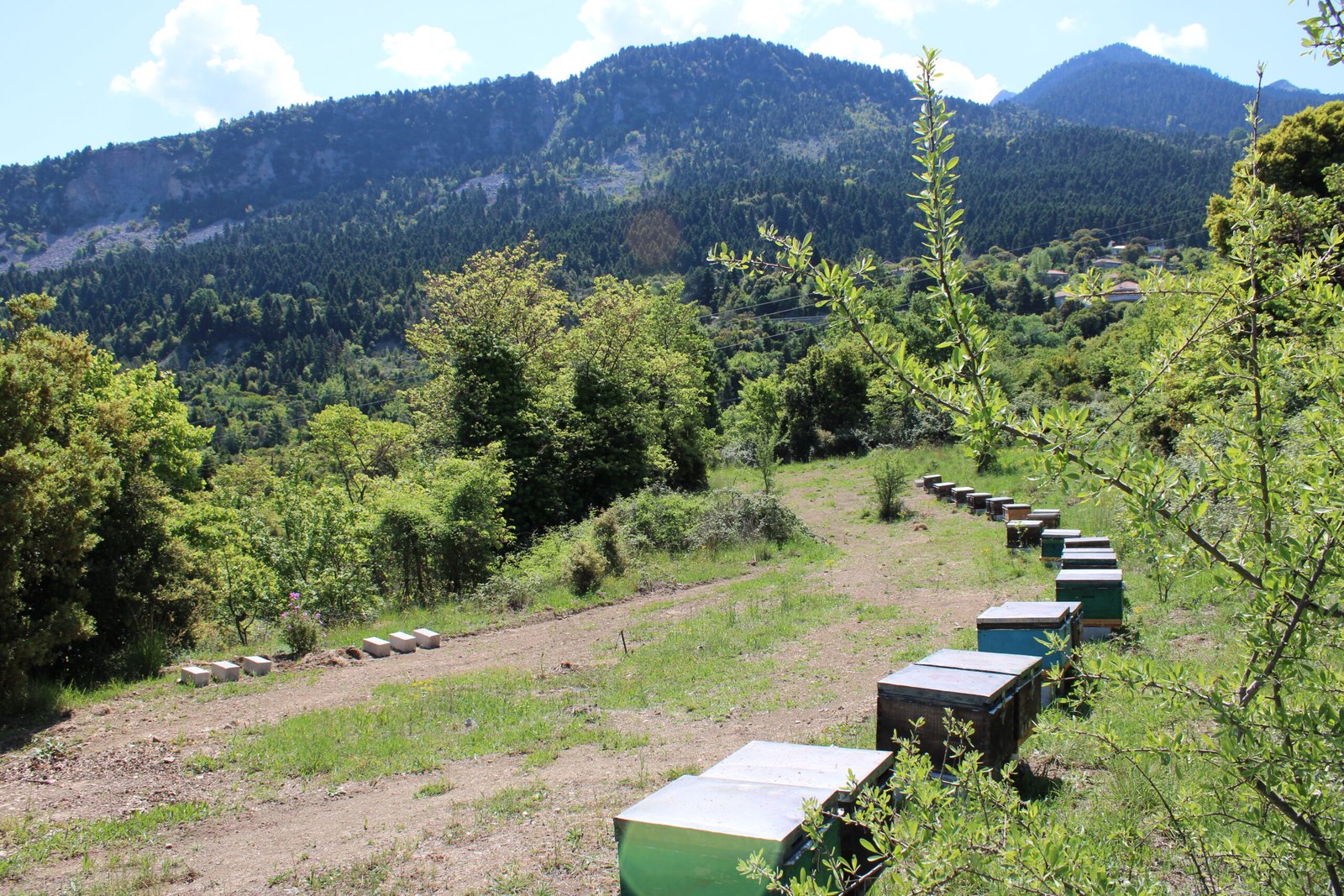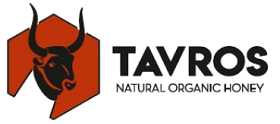
ΤAVROS is a Greek company dealing with the collection, packaging, and distribution of honey.
The inspiration for the Company’s creation was established many years ago, when its founder, George Bokas, was a pilot in the Greek Air Forces and afterwards in Civil Aviation, in VIP flights. During that time, he ascertained that a certain part of consumers will always search for authentic flavors and high-quality organic products. His subsequent experience as a General Manager to a Food Stores chain, confirmed this belief.
His daughter, Vassiliki-Ioanna with a Bachelor’s Degree in Chemistry and MSc & PhD in Pharmacognosy and Natural Products Chemistry from the School of Pharmacy at National & Kapodistrian University of Athens, aided that inspiration.
Following many years of training, studies and detailed planning, the whole project became a reality in July 2014 by the establishment of the first apiary. Today the company owns 3 permanent organically certificated apiaries.
The fine organic honey, is collected from the unique flora of the wider central Hellas and Ionian Islands, which are included in the NATURA 2000 network, far away from any urban areas.
The organic honey harvested from TAVROS, is considered to be one of the best in the world due to the biodiversity of the flora and the natural coexistence of tree vegetation in combination with a multitude of wild flowers, aromatic plants, and herbs, the particular climate conditions and the long sunshine of the area.
After harvesting, the honey is carefully filtered and stored directly into suitable containers. It is raw and unprocessed honey.
- Our honey mainly originates in mountainous areas, away from cultivations.
- Minimum amount of smoke usage.
- Harvest takes place only after the honey has completely matured.
- Zero heat treatment.
- Long clarification in tanks for plenty of days prior to storage.
- Packaging without heat treatment distortion, under the conditions of ISO 22000.
Our honey is product of a Single crop!
Its specificness and uniqueness is the reason for its limited production.
Selection of unique virgin areas for the honey collection, within the NATURA 2000 network, as well as completely natural processing!
After harvesting, the honey is carefully filtered and stored directly into suitable containers. It is packaged without being distorted by heat treatment, under the conditions of ISO 22000.

The aim of TAVROS
The aim of TAVROS is to supply completely organic and natural, unadulterated and pure honey, just as nature and bees provide us.
The scientific and fully technically handling of bees’ swarm, the selection of unique virgin areas for the honey collection, within the NATURA 2000 network, as well as the completely natural processing of the products, guarantee over time high quality and reliability.
THE LOGO
Aristaeus and the Bees
Aristaeus was the son of Apollo and Cyrene, daughter of the king of the Lapiths, Hypseus.
One day, while Cyrene was tending her father’s flocks on Mount Pelion, a lion attacked her.
Though unarmed, Cyrene managed to strangle the lion.
Apollo witnessed her struggle with the beast and fell in love with her.
He abducted her and took her to Libya, where the nymph Libya hosted the couple in her palace.
Apollo and Cyrene gave birth to Aristaeus. Then Hermes carried the child to the Horae and Gaia, who anointed his lips with nectar and ambrosia, thus making him immortal.
When Aristaeus grew up, the Nine Muses taught him the arts of prophecy and medicine, while the Spring Nymphs taught him the cultivation of vines and olives and the art of cheesemaking.
The nymph Melissa taught him how to practice beekeeping.
And when everything had been perfected, the Muses assigned Aristaeus the task of tending their flocks in Phthia. They also gave him the mission of passing on the knowledge of these arts to humans.
At one point, the inhabitants of the Cyclades, desperate due to a terrible epidemic, sought help from Aristaeus, following an oracle from Delphi.
He agreed to help them on the condition that he be allowed to settle on the island of Ceos (Kea).
The islanders accepted.
After Aristaeus made sacrifices to Sirius and to Zeus Ikmaios, the god of dew, the meltemia winds began to blow for forty days, cleansing the polluted air.
Ever since, the meltemia blow each year during the same period, cooling the Cyclades with their beneficial breeze.
Beyond the Cyclades, Aristaeus also went to Arcadia to teach beekeeping, wool-working, and the art of hunting.
But in Arcadia, he happened upon Eurydice, the wife of Orpheus, and dazzled by her beauty, tried to take her by force.
Eurydice—faithful to Orpheus—fled.
While escaping through the mountains of Arcadia, she was bitten by a snake and died.
Because of this tragic event, honey nearly disappeared forever, as shortly after, Aristaeus found all his bees dead.
Desperate, he sought help from his mother, Cyrene, who advised him to find Proteus—the shape-shifter who could take any form he desired.
Eventually, Aristaeus met Proteus, and the all-knowing old man revealed that the Napaean Nymphs, childhood friends of Eurydice, were the ones who had destroyed his bees.
Aristaeus captured Proteus and forced him to reveal how he could restore his bees.
Thus, he learned that in order to appease the wrath of the Napaean Nymphs and regain his bees, he had to sacrifice four carefully chosen bulls and four cows, leaving their carcasses in a shady spot.
He did as instructed.
Then, from those carcasses, bees were born again.
Bees that, born from the bull, became—and remain to this day—the most important insect on Earth, precious to Nature and to humanity.


